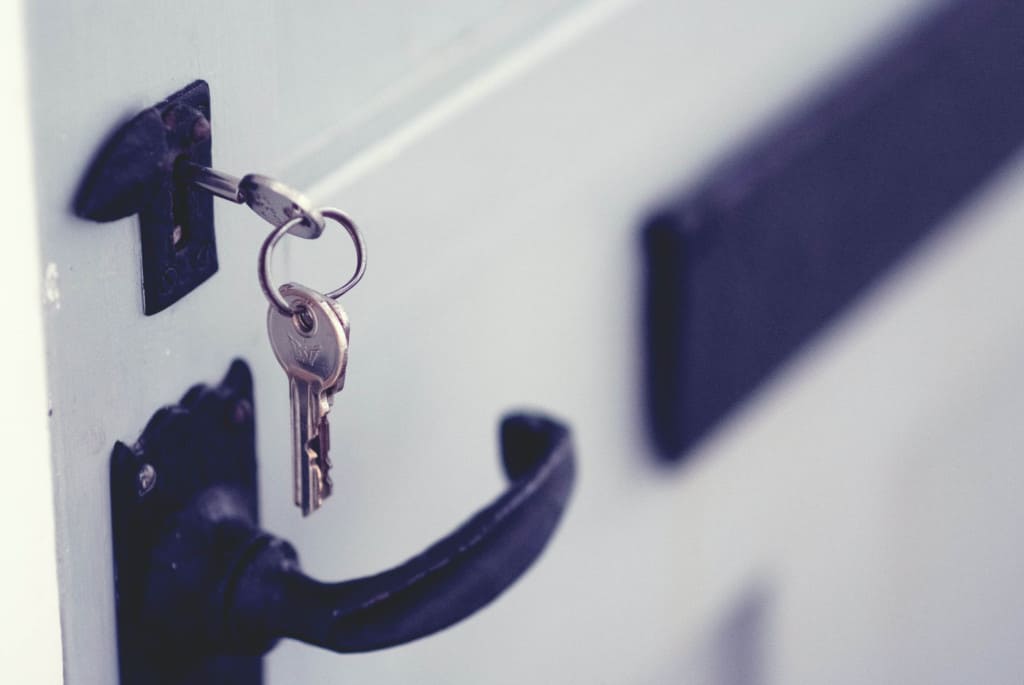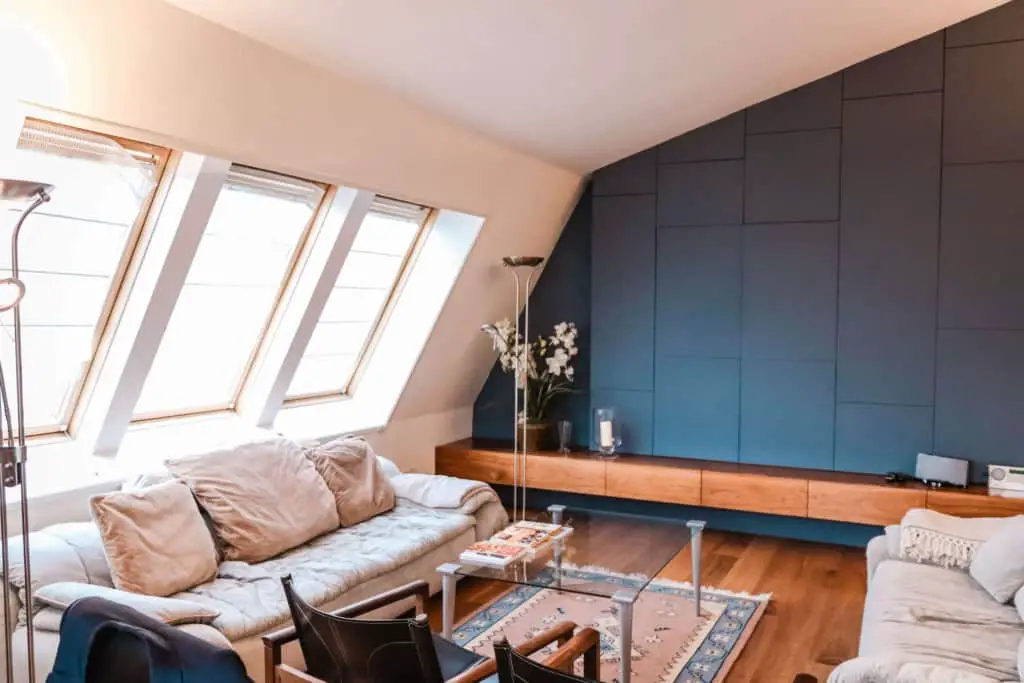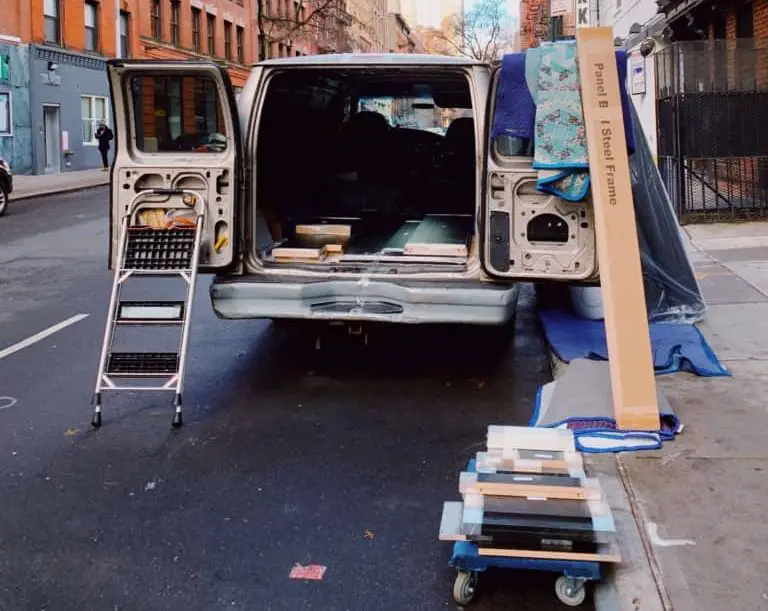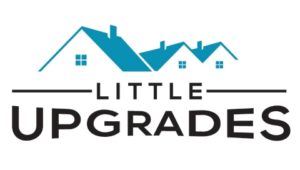
When it comes time to move or to begin a new lease, a common question is “can you lease two apartments at the same time?”
In most cases, there are no restrictions against renting two (or more) apartments at the same time. As long as you can meet all of the obligations under your lease, and continue paying your rent for all apartments, then there shouldn’t be any issues.
I’ve personally rented 5 different apartments over the past 6 years, and I have had my name on two active leases at the same time. There are a few reasons you may want to rent two apartments at once, and there are some things you should consider before doing it. We’ll dig into more detail below.
Table of Contents
Note: I am not a lawyer and this is not legal advice. This is simply insight from my personal experience and research. If in doubt, consult a lawyer before making important legal decisions.
Can You Lease Two Apartments at the Same Time?

Whether you can rent two or more apartments at the same time, is primarily dependent on whether you can pay rent and meet all other lease obligations on all of your apartments at the same time.
For many people, the cost of rent alone would prevent them from having two or more leases in their name at the same time. But, it might be possible (and even advantageous) for other folks.
Here are a couple of common examples where you might rent two apartments at the same time.
Why Have Two Leases?
1. Your Leases Overlap When Moving
This is a scenario I’ve dealt with myself. Sometimes, you may find the perfect apartment for you, but the lease overlaps with your current lease by 15 days, 1 month, etc.
This is probably the most common reason to have two apartment leases at the same time.
It can make it easier to move because you don’t have to deal with a 1-day turnaround and/or moving stuff in and out of storage. However, it is also a high price to pay for a little added convenience.
For example, if you rent a 1-bedroom apartment, your monthly rent might be $1600/month (varies dramatically based on location). If you overlap for just 1 month, that’s gonna cost you $1600 + utilities.
2. You Travel Frequently
If you travel frequently for work, school, etc, or you got a new job, you might be inclined to have an apartment at home, and an apartment at work/school.
For example, I’ve worked in both Minneapolis and Austin for about a year (each), while living in a different state. I stayed in a hotel the whole time, but that really started to get old after a while.
So, I could easily imagine a consultant, contractor, or other types of professionals, renting an apartment in their home city and their work city.
3. Congrats, You’re Wealthy
I confess I’m not in this group myself, but I know some folks who are. If you are doing well financially, you might decide to rent multiple apartments out of convenience, or for sport and leisure.
For example, it’s not uncommon for people to own or rent summer homes. Or even a second home on each coast in the US (e.g. New York and Los Angeles).
So that’s a few examples of when/why you might rent two or more apartments at once. Now let’s cover a couple of exceptions where you might not be able to rent multiple apartments:
Reasons Why You Might Not Be Able To
While there are many great reasons why you might want or need to have multiple leases, there are some possible exceptions that might prevent this from being possible.
1. The Landlord Sees You as a Financial Risk
Just because you can theoretically rent two or more apartments at once, doesn’t mean a given property manager will see you as a financially stable tenant.
If your finances are stretched thin because of your existing lease, if you have a bad credit score or a history of missing payments, a landlord may refuse to rent their apartment to you.
2. Government Subsidized Housing
If your first or second lease is rent-controlled, or connected to a government-assisted housing program, then you may have restrictions or legal issues that make it difficult (or impossible) for you to rent a second apartment.
I’ve not dealt with this situation myself, but I could imagine this getting complicated. If you have this type of situation, you may need to consult a lawyer to understand your options.
There could be other exceptions, but I think this captures the highlights. As I mentioned, one of the most common reasons for having two leases at once is overlap in the leases when you’re moving. Let’s cover a couple of ways to avoid that double payment next.
How To Avoid Double Rent When Moving

If you’re moving and you want to avoid paying double rent, there are a couple of ways you can do it. You can negotiate with your current landlord, negotiate with your new landlord, or you can temporarily move your belongings into storage.
Each of these has some nuances to them, and we’ll cover those in more detail below. But first, let’s highlight the two main reasons you might be considering double rent in the first place:
- One day gap between new lease and old lease
- You found a place you like, but the new lease overlaps
It’s typical for leases to begin on the first day of the month, and end on the last day of the month. This seems very logical, until of course, when it’s time to move and you don’t know what to do with all your stuff for the one day between your old lease and your new lease.
For example, say your current lease expires on July 31, and your new lease begins on August 1, what do you do with your stuff for the night of July 31?!
Another common situation is to find an apartment that you really like, but the new lease overlaps with your old lease. For example, imagine your lease expires on July 31, but you find a place you love where the lease begins on July 1. What do you do?
Here are the 3 main methods you can use to work through these issues:
1. Negotiate with Your Current Landlord
If your previous landlord doesn’t have a new tenant lined up, or if the tenant isn’t moving in until later, then they may be open to allowing you to stay one extra day until you move.
This is up to the discretion of your property manager, and if they have a new tenant moving in, there won’t be anything they can do. However, if the unit is going to be empty, many landlords will be open to letting you stay an extra day.
They may expect you to pay for an extra day’s worth of rent, which is pretty reasonable in my opinion.
2. Negotiate with Your New Landlord
Another option is to try negotiating with your new landlord. It’s a similar situation but in reverse. If the unit is empty, then your landlord will likely be willing to let you move in a day early.
This will not always be possible, and your landlord probably will expect you to pay an extra day of rent if it is possible. However, it’s definitely worth a try, considering it could save a lot of money for you.
Also, if the move-in date of the new lease is set for later than you want, then you may be able to talk the landlord into changing it to your desired move-in date.
For example, if you want to move in on August 1, but the move-in date for the new lease is July 1, your landlord might be willing to go with your move-in date or meet you halfway (e.g. July 15th).
This is up to the discretion of your landlord. If you have great credit, or if the landlord has been having trouble renting their place, they may be happy to negotiate with you. However, if they have a really nice unit that typically rents out quickly, then they will be less willing to negotiate.
3. Put Your Stuff in Storage for a Day
Finally, if options 1 and 2 don’t work out for you, you could always put your stuff into a storage unit to fill the gap.
Sure, this is a hassle, but it could be worth it if it will save you a lot of money. There are a lot of self-storage units that you can rent for pretty cheap, or if you have a friend/neighbor with a big garage, that might also be an option.
If it’s just a one-day gap, then some folks will even just leave all their stuff in a U-Haul overnight, and then move it in the next day.
What To Do Before Signing an Additional Lease
Let me first preface this by saying I am not a lawyer or a financial professional and none of this should be taken as legal or financial advice.
But, I’ve jotted down some guidelines that you might find helpful when figuring out if you should have two leases at once.
1. Check Your Finances
We’ve already talked about this, but having two leases at once can be expensive.
Check your finances to make sure you can make both rent payments and pay all utilities on time. If you can’t pay them both on time, then you should reconsider having two leases.
If you fail to make all the payments on time, you could negatively impact your credit score which can affect a lot of other things down the road.
Another cost to consider is the security deposit and application fees, how much will these fees at the new apartment be and can you afford the one-time fees along with all the other expenses?
A security deposit can sometimes be equivalent to one month’s rent which could be a big chunk of money depending on where you’re renting.
If it’s just for a period of overlap, then try to negotiate with the landlords to make it as small of an overlap as possible.
2. Thoroughly Read Both Lease Agreements
No one wants to get on the bad side of their landlord, to help avoid any issues, thoroughly read both property’s rental agreements/terms of the lease.
It’s kind of in our nature to just sign the papers without reading them, but to make sure you can meet all the lease terms for both rental properties, you need to know exactly what is expected of you.
So, buckle up to read many paragraphs of legal speech.
3. Openly Communicate With The New and Old Landlord
At the end of the day, it’s the landlord’s decision whether they’ll allow you to rent their space. It’s always a good idea to be upfront about what you’re planning.
Openly communicate that you have another lease with your new landlord and let your old landlord know that you’re getting a second lease.
This information will show up on credit reports so telling them in advance will make sure there are no surprises for either property and set you up to start your new future as a double leaser.
4. Do the Paperwork
Last but not least, you have to fill out all the documents and sign your life away.
But, since you read that rental agreement you know exactly what you’re getting yourself into, right? If you cut corners and didn’t even skin the contract, do it before you sign anything.
Now that you’ve dotted your I’s and crossed your T’s, it’s time to enjoy that new place you got.
Related Questions
Can You Rent an Apartment and Own a House?
There are generally no restrictions to prevent you from owning a house and renting an apartment at the same time, as long as you can meet all of the financial and legal obligations on the lease and mortgage (if applicable). There could be exceptions to this, such as bad credit or other financial issues.
Can I Have a Treadmill in an Apartment?
A majority of the time, you can have a treadmill in your apartment. But, there are many variables to consider such as space, time of use, noise, etc. As always, it’s best to check the specifics of your lease agreement with your landlord before taking action.
Does Having Two Leases Hurt Your Credit?
If you pay all expenses on both properties on time then your credit score will not be hurt. In fact, consistently making these payments on time could actually boost your score. Make sure you check your finances before signing a second lease so you can make those payments.
Can You Have Two Leases If You Cosign on Someone Else’s Lease?
Yes, you can sign onto an additional lease if you are a cosigner on a lease with a friend or a family member. A cosign lease works the same way as your lease, if the payments aren’t made on the cosigned lease, your credit could be affected as well. Make sure you carefully consider your finances before agreeing to cosign with someone.
